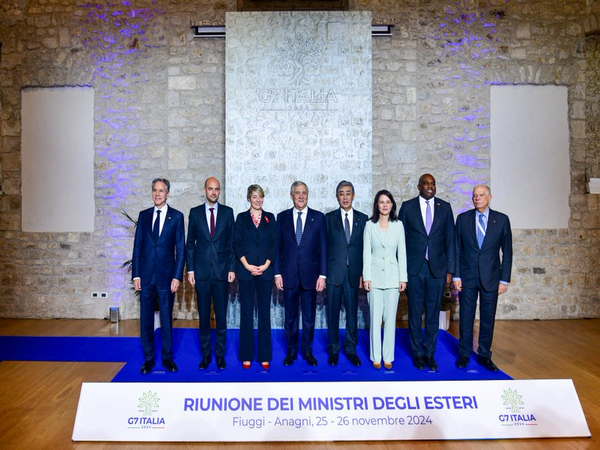G7 and EU Criticize China's Human Rights and Maritime Actions
The G7 and the EU have voiced their worries over China's human rights record in regions like Xinjiang, Tibet, and Hong Kong. The group condemned the sentencing of 45 pro-democracy activists and China's maritime practices in disputed seas, urging compliance with international laws.

- Country:
- Italy
The Foreign Ministers of the G7 nations and the European Union's High Representative have articulated their profound concern regarding China's human rights record, specifically in Xinjiang, Tibet, and Hong Kong. The joint statement, released after a meeting in Italy, strongly criticized the recent sentencing of 45 pro-democracy politicians and activists, perceiving it as a grave diminution of democratic engagement and pluralism.
In detailing their concerns, the G7 ministers from Canada, France, Germany, Italy, Japan, the UK, and the US, along with the EU's High Representative, highlighted the severe implications of these actions. "The sentencing of these individuals marks a further erosion of democratic participation, undermining trust in the rule of law as per the Hong Kong Basic Law," they stated, urging China to honor its international commitments.
The sentencing under Hong Kong's National Security Law is seen as a direct confrontation to the territory's autonomy and China's international legal obligations. Since the law's enactment, nearly 300 arrests mark a sharp deterioration in the rights landscape. Beyond human rights, the G7 and EU decried China's actions in the East and South China Seas, opposing any unilateral moves to alter the status quo through coercion.
The Foreign Ministers voiced strong opposition to China's expansive maritime claims, notably its militarization in the South China Sea and the coercive tactics employed against other nations' navigation rights. They reaffirmed that the United Nations Convention on the Law of the Sea remains paramount in guiding maritime conduct. The G7 emphasized the July 2016 Arbitral Tribunal decision as a crucial, binding milestone in resolving regional disputes.
(With inputs from agencies.)










